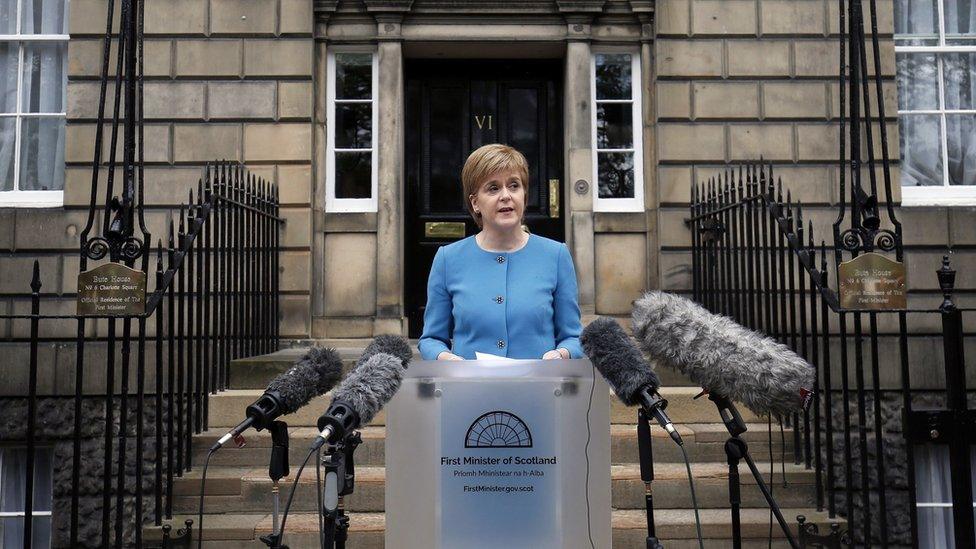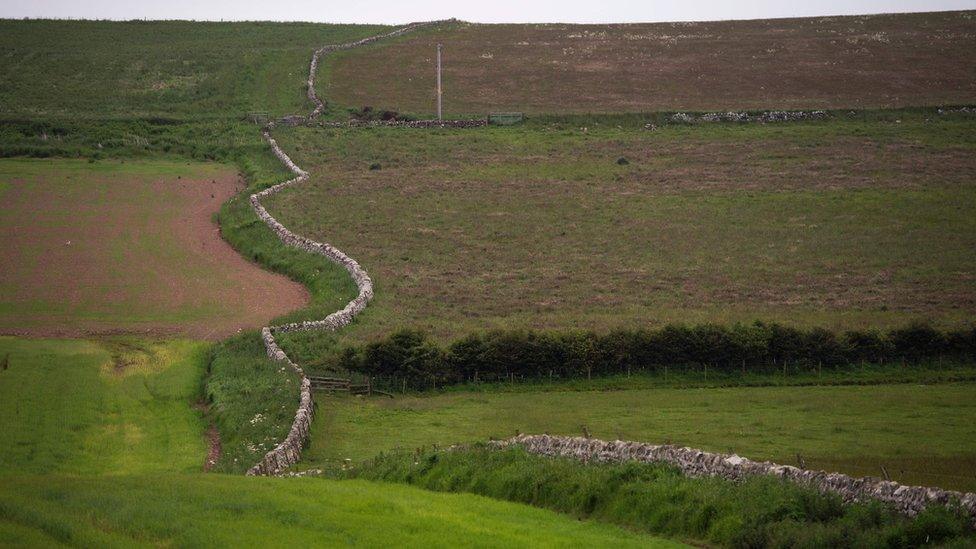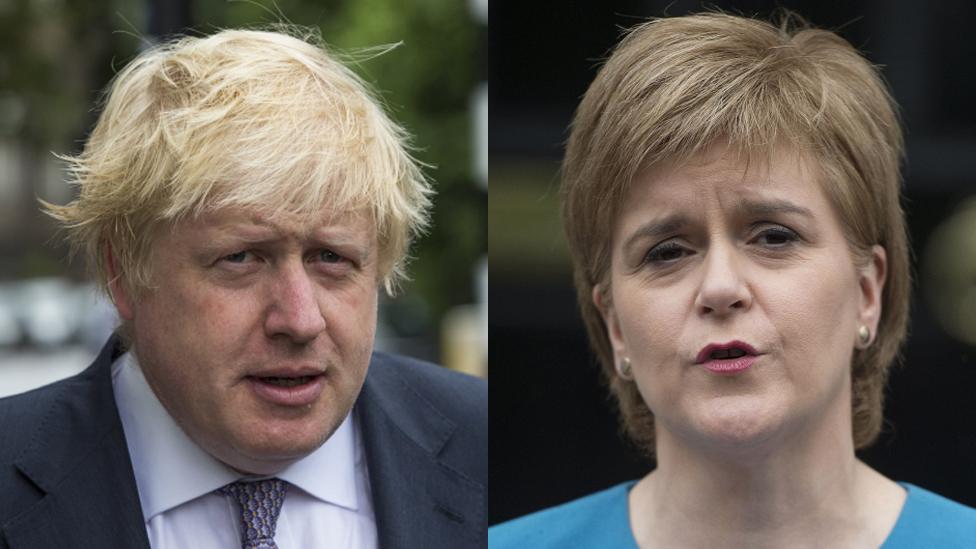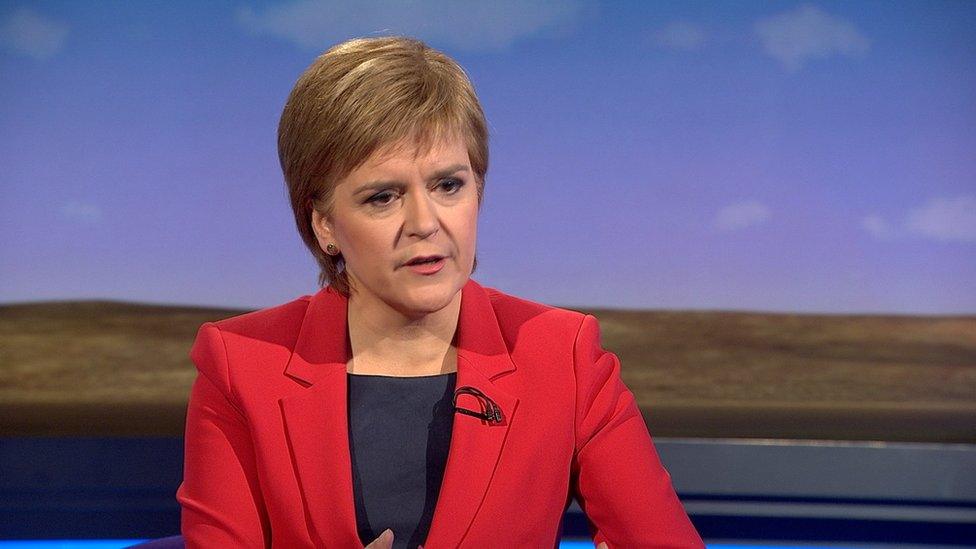Brexit: Nicola Sturgeon keeps her head while others lose theirs
- Published

"If you can keep your head when all around are losing theirs... you will be a man, my son" wrote Rudyard Kipling. He may have got the gender wrong but he could have been talking about Nicola Sturgeon.
In the immediate aftermath of the EU referendum result, the first minister of Scotland has seized the opportunity to make herself look like the only grown-up in the room.
Whilst Labour and Tory politicians are playing cricket, hanging out at Glastonbury or hiding away indoors Nicola Sturgeon pulled on the power heels and took charge.
On Friday, at a press conference inside her official residence Bute House in Edinburgh, she announced that she will be seeking ways to try to maintain Scotland's relationship with the EU. She is demanding talks with European leaders about trying to preserve Scotland's place in the EU.
She has already ordered officials to start preparing the legislation that would allow for a second referendum on Scottish independence. And on Sunday she even suggested she might be able to find a way to frustrate the legal process of a Brexit if the Scottish parliament refuses to pass a consent motion.
After an emergency cabinet meeting convened on Saturday - two days before the UK cabinet was assembled - she made a statement telling EU citizens "who have done us the honour of choosing to make Scotland their home" that they are welcome here.
She doesn't actually have the power to make any decisions about who can and can't reside in Scotland. But she wanted to send a message that sets a different tone.
Nicola Sturgeon did not want to find herself in this position. She genuinely wanted a vote to Remain and means it when she says she the thinks the interests of Scotland and the whole of the UK will suffer as a result of leaving. But she is also making the best of the ensuing turmoil.

The England-Scotland border near Berwick-upon-Tweed is currently marked by a dry stone wall
Brexit may provide the best chance yet for an independent Scotland. Polls are already showing an uptick in support.
Some senior Labour politicians and other high profile unionists are already saying they may now vote for independence. And there are leaders in Europe who are beginning to sound a lot more sympathetic toward an independent Scotland's membership of the EU than they did in 2014.
That doesn't mean any of this will be plain sailing. Brexit makes the arguments over Scottish independence considerably more complicated.
The question of which currency Scotland would use is not any easier to answer. The prospect of a hard border along the River Tweed looks more likely.
Will the current frustration of Scottish voters really translate into long term support of independence? Who knows?
But right now Nicola Sturgeon looks like she is making the best of crisis which, she is able to keep reminding voters, was not of her making.
- Published27 June 2016

- Published26 June 2016
